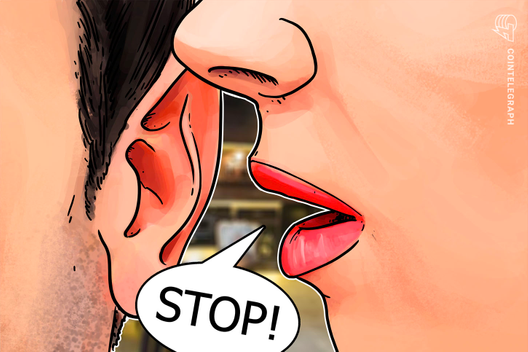Law Decoded: Pushing the Legal Limits, July 10–17
Every Friday, Law Decoded delivers analysis on the week’s critical stories in the realms of policy, regulation and law.
Editor’s note
New developments in crypto this week are challenging a number of critical boundaries of legal authority. We are, consequently, looking at several cases that promise to set new lines for government reach and overreach.
Cassius lamented Caesar bestriding the narrow world like a colossus. While nothing on the docket today is going to be as dramatic as the death of the Roman Republic, we did actually see a pretty eerie yet oddly comical dress rehearsal for bad actors masquerading as state leaders. We’re also looking at some national regulators who are looking to go well outside of their obvious borders.
In last week’s Law Decoded, I pointed out that the crypto industry has a bad habit of forgetting that regulators handling crypto are handling other colossal financial systems at the same time. In some sense, today’s newsletter is a retracing of that sentiment. There’s a lot of power at play.
Elon Musk is not going to give you Bitcoin, and other harsh realizations
By far the loudest news to come out of the crypto world this week was a Twitter hack that, while ingenious enough to access and tweet from the accounts of many of the most powerful people in the world, lacked the ingenuity to use that power for anything other than a simple scam, offering to multiply Bitcoin sent to an address.
As many pointed out, this was an extremely hackneyed scam executed on an extraordinary scale. Indeed, as the hack expanded beyond characters familiar to the crypto world like CZ to global figures like Barack Obama, Elon Musk and Jeff Bezos, many looked upon Donald Trump’s timeline and despaired.
Given that the president has used Twitter to announce policies, as well as engage in high-profile conflicts with leaders of Iran and North Korea — during which times, U.S. troops were suddenly forced to plan for new mobilizations — the reminder of Twitter’s vulnerability as a centralized platform was ominous.
For the record, Trump’s timeline remained untouched. But there has been a great deal of talk in recent months about limiting the authority of social media platforms due to their importance to public discourse. But this is almost the inverse problem of government characters like Joe Biden potentially having their public personae highjacked. Expect this recent hack and the implied threat to global order to factor into future conversations on the subject. On the flip side, the blockchain industry is likely to use this to promote decentralized analogs to social media giants.
Either way, keep in mind that whoever was behind this hack only netted some $121,000. It’s certainly not great news for crypto’s reputation in the public eye, but it’s hard to see this event as fundamentally being about immediate gains.
A rupee supreme
The author of an infamous proposed total ban on crypto in India has spoken out, telling the industry that it’s not a total ban at all.
Former Finance Secretary Subhash Chandra Garg said that the actual objection to crypto in the bill is its use as a currency. He said that the ban would allow investment into crypto as a digital commodity.
If so, this is a message that media including Cointelegraph have garbled in the past. But also, that seems like a remarkably fine line to draw. If you can trade crypto as a commodity, what about peer-to-peer transactions? How do you possibly filter all of those into categories like “suspiciously currency-like?” And then how do you actually hold such a devious criminal accountable?
Garg’s concerns are common among regulators, who see crypto as a threat to monetary sovereignty. In places like Venezuela or Zimbabwe today, avoiding the monetary authority of the reigning government is a hugely bullish argument for Bitcoin. But also, it seems clear that the full implications of any such ban in India, a country of nearly 1.4 billion people, have yet to be properly laid out.
Not my citizens, still my problem
After considerable back-and-forth, the two federal U.S. investment regulators, the SEC and the CFTC, jointly fined crypto-based app Abra for its synthetic swap service, which translated price movements in U.S. stocks and ETFs into changes in collateral that investors put up in BTC and Litecoin.
The fines themselves were fairly nominal, totaling $300,000, which is unlikely to cripple the app, but the case is definitely a strong warning shot for several reasons, not least of which is the fact that mixed swaps are one of those areas that provoke both the SEC and CFTC to action. The nature of jurisdictional limits on U.S. financial regulators is also in question.
Abra had backed down from its synthetic securities service in February of 2019 at the gentle behest of the SEC. The firm picked it back up later that year, having excluded U.S. investors and registered the subsidiary offering the service in the Philippines. The new intervention from both the SEC and the CFTC clearly puts down a flag in new territory: Neither agency suggests that the firm was offering these services to U.S. investors, but they claim jurisdiction over Abra and its subsidiaries because of the firm’s offices in California.
Once again, $300,000 is not a particularly draconian settlement, but neither was Block.one’s. It’s the precedent of expanding authority.
Further reads
Coin Center’s Peter Van Valkenburgh lays out what recent legislative threats to encryption mean (and don’t mean) for crypto and decentralized networks.
JDSupra has updated its information on state vs. federal laws as they pertain to crypto to include, among other things, new licensing in Louisiana.
Patrick Tan reflects on how a Chinese CBDC could spark a push to crypto on the part of citizens worried about their privacy.









